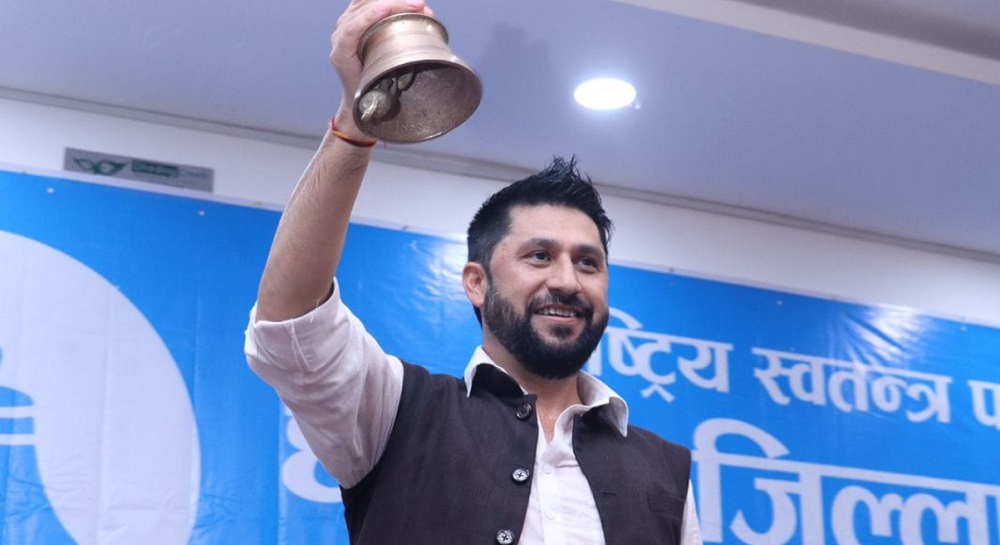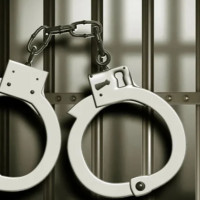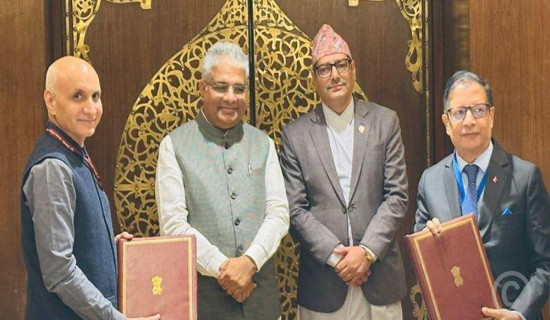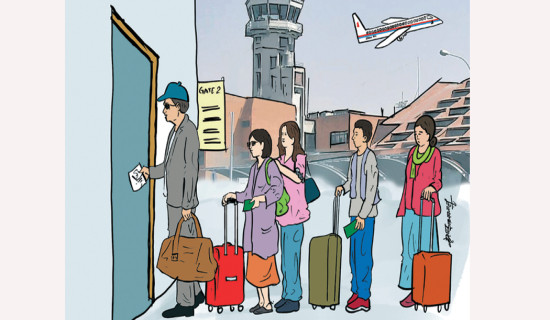- Thursday, 26 February 2026
Ex-DPM Lamichhane arrested
Kathmandu, Oct. 19: Rastriya Swatantra Party (RSP) president and former Deputy Prime Minister and Minister for Home Affairs Rabi Lamichhane has been arrested on the charges of cooperative fraud and organised crime.
Lamichhane was arrested by a team of the Central Investigation Bureau (CIB) from his party office in Banasthali of Kathmandu-16 on Friday evening.
A special team led by CIB’s Superintend of Police Hobindra Bogati reached the RSP’s party office to arrest the former deputy prime minister and home minister.
Although a large number of RSP leaders and supporters were present on the premises of the party office, they did not obstruct the police.
RSP leaders had urged their supporters not to hinder the police. Upon the request of the Lamichhane, CIB had prepared to take him to Kaski Police Office, Pokhara, by road Friday evening itself as the case was filed in Kaski District Police Office.
Dozens of RSP leaders and supporters also travelled to Kaski alongside the police vehicle.
Earlier on Friday, the Kaski District Court permitted the police to arrest Lamichhane. The bench also allowed the police to arrest 13 others—Bishal Tamang, Nabin Achhami, Rabina Rimal, Ashraf Ali Siddiqui, Dipak Lama, Ananta Babu Rai, Ram Bahadur Khanal, Devendra Babu Rai, Bigyan Rai, Om Prakash Gurung, Bir Bahadur Ranabhat, Deepa Neupane and Kalpana Kumari Shrestha–in connection with the same charges.
Earlier, the District Police Office, Kaski sent a letter to the Central Investigation Bureau (CIB) of Nepal Police requesting the latter to arrest Lamichhane for investigation into cooperative fraud and organised crime. The letter was addressed to the CIB, the Kathmandu Valley Crime Investigation Office, and the Kathmandu District Police Range.
A parliamentary special probe committee was formed in May to investigate the crisis-ridden cooperatives. The committee’s report concluded that Lamichhane was involved in misusing millions of rupees funneled into Gorkha Media Network from various cooperatives when he was the managing director of the now-defunct media company that ran Galaxy 4K Television before Lamichhane joined politics. The report also holds several others responsible for the cooperative fraud.
The committee’s report recommended action against Lamichhane and several others, as per the law.
The report has said over Rs. 63 billion was embezzled by cooperative owners from various crisis-ridden cooperatives across the country. It has recommended prosecuting four individuals, including Lamichhane, the then managing director of Gorkha Media Network; chairman Gitendra Babu (GB) Rai; board member Kumar Ramtel; and initial founder of the company Chhabi Lal Joshi.
Joshi, a former deputy inspector general of Nepal Police, was arrested in Kathmandu a month ago.
However, Lamichhane and the leaders of the Rastriya Swatantra Party deny any wrongdoing.
The special probe committee was formed on May 28. The seven-member committee was formed as per the demand of the then main opposition Nepali Congress.
Joshi, a retired deputy inspector general (DIG) of Nepal Police, is currently in custody in the same fraud case.
What legal provision says?
According to the legal provisions, the punishment for cooperative fraud ranges from two to 10 years in prison, depending on the amount involved. If organised crime is also proven, the punishment can be increased by up to one and a half times the maximum penalty for cooperative fraud. Organised crime is not a separate offence; if it is proven that the crime was committed in an organised manner, the penalty for the relevant offence can be increased by one and a half times as per legal provisions.
In cases of organised crime, the police can keep the accused in custody for up to 60 days for investigation. However, since former DIG Chhabi Lal Joshi was arrested on the same charge about a month ago, any new arrests will likely result in a maximum of one month in police custody.
If there is also an investigation into money laundering, the detention period could be extended. The legal provision allows for up to 90 days in custody for money laundering cases.
The issuance of the arrest warrant or police custody for investigation does not necessarily mean that a case will be filed. The decision to prosecute or not, and the charges to be brought, is made by the Office of the Government Attorney.
There are several instances where, after arresting and detaining the accused for investigation, it was decided not to prosecute in the lack of evidence.







-square-thumb.jpg)








